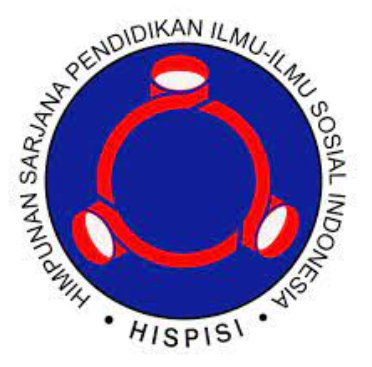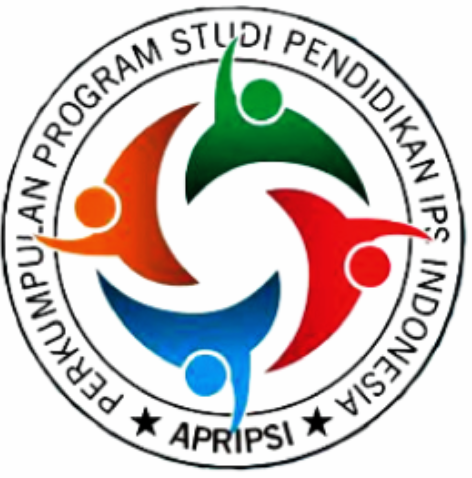Pengaruh Fenomena Cashless Society Terhadap Gaya Hidup Masyarakat di Jakarta.
(Studi Kasus Pengguna Go-Pay di Kalangan Mahasiswa P.IPS UNJ 2015 - 2018)
DOI:
https://doi.org/10.21009/EIPS.003.2.02Keywords:
Cashless Society, Go-Pay, Student LifestyleAbstract
ABSTRAK
Made Adhiya Wikannanda, Pengaruh Fenomena Cashless Society terhadap Gaya Hidup Mahasiswa di Jakarta. Skripsi. Jakarta : Program Studi Pendidikan Ilmu Pengetahuan Sosial, Fakultas Ilmu Sosial, Universitas Negeri Jakarta, 2019.
Penelitian ini bertujuan untuk menganalisis fenomena Cashless Society sebagai model baru dalam menganalisis gaya hidup mahasiswa di Jakarta. Data yang digunakan dalam penelitian ini adalah data primer dengan memberikan kuesioner kepada mahasiswa di Universitas Negeri Jakarta dengan total responden sebanyak 80 orang. Metode yang digunakan adalah metode pendekatan kuantitatif.
Pengambilan sampel dilakukan dengan menggunakan teknik purposive sampling. Kriteria yang digunakan dalam pemilihan sampel ini adalah responden yang mempunyai aplikasi pembayaran secara cashless (Go-Pay) dan menggunakannya minimal 1 (satu) kali dalam seminggu.
Kesimpulan penelitian ini menunjukkan persamaan regresi linier sederhana Y = 29.850 + 0,670X. Persamaan regresi ini memiliki pengertian bahwa terjadi kenaikan (1) pada gaya hidup maka cashless society akan mengalami peningkatan sebesar 0,670. Sedangkan jika cashless society mengalami penurunan (0) maka gaya hidup akan memiliki penurunan sebesar 29.850.Koefisien determinasi diperoleh senilai 61,3% yang artinya semakin tinggi pengguna cashless berarti akan semakin mempengaruhi gaya hidup penggunanya. Sedangkan nilai 38,7% yang tersisa adalah nilai yang mempengaruhi gaya hidup dari faktor-faktor lainnya.
Berdasarkan hasil perhitungan uji hipotesis menggunakan uji t (two tail) didapatkan nilai hasil sebesar 11,127. Maka taraf siginifikansi dari thitung > ttabel maka hipotesis H1 diterima dan H0 mengalami penolakan.
Kata kunci : Cashless Society, Gaya Hidup Mahasiswa, Theory Of Planned Behaviour.
ABSTRACT
Made Adhiya Wikannanda, Influence of the Cashless Society Phenomenon on Student Lifestyle. Bachelor, Thesis. Jakarta: Program Study Education of Social Science. The Faculty of Social Sciences, State University of Jakarta, 2019.
This research aims to analyse the phenomenon of Cashless Society as a new model in analyzing the student's lifestyle in Jakarta. The data used in this research is primary data by providing questionnaires to students at the Jakarta State University with a total of 80 respondents. The method used is a quantitative approach method. Sampling is performed using the purposive sampling technique. The criteria used in this sampel selection are respondents who have a cashless payment application (Go-Pay) and use it at least 1 (one) time a week.
The conclusion of this study suggests a simple linear regression equation Y = 29,850 + 0, 670X. This regression equation has the sense that there is an increase (1) in the lifestyle then the cashless society will experience a rise of 0.670. Whereas if the cashless society has decreased (0) then the lifestyle will have a decrease of 29,850.
The coefficient of determination is achieved at 61.3% which means the higher the cashless users will be increasingly affecting the user's lifestyle. While the remaining 38,7% value is a value that affects the lifestyle of other factors.
Based on the results of the hypotheses test calculation using T (two tail) test obtained a result value of 11.127. Then the level of Siginifikansi from tcount > ttablel it make hypothesis means H1 accepted and H0 suffer rejection.
Keyword : Cashless Society, Student Lifestyle, Theory Of Planned Behaviour.
Downloads
Published
How to Cite
Issue
Section
License
Authors who publish with this journal agree to the following terms:
- Authors retain copyright and grant the journal right of first publication with the work simultaneously licensed under a Creative Commons Attribution ShareAlike License that allows others to share the work with an acknowledgement of the work's authorship and initial publication in this journal.
- Authors are able to enter into separate, additional contractual arrangements for the non-exclusive distribution of the journal's published version of the work (e.g., post it to an institutional repository or publish it in a book), with an acknowledgement of its initial publication in this journal.
- Authors are permitted and encouraged to post their work online (e.g., in institutional repositories, pre-prints sites or on their website) prior to and during the submission process, as it can lead to productive exchanges, as well as earlier and greater dissemination of published work






